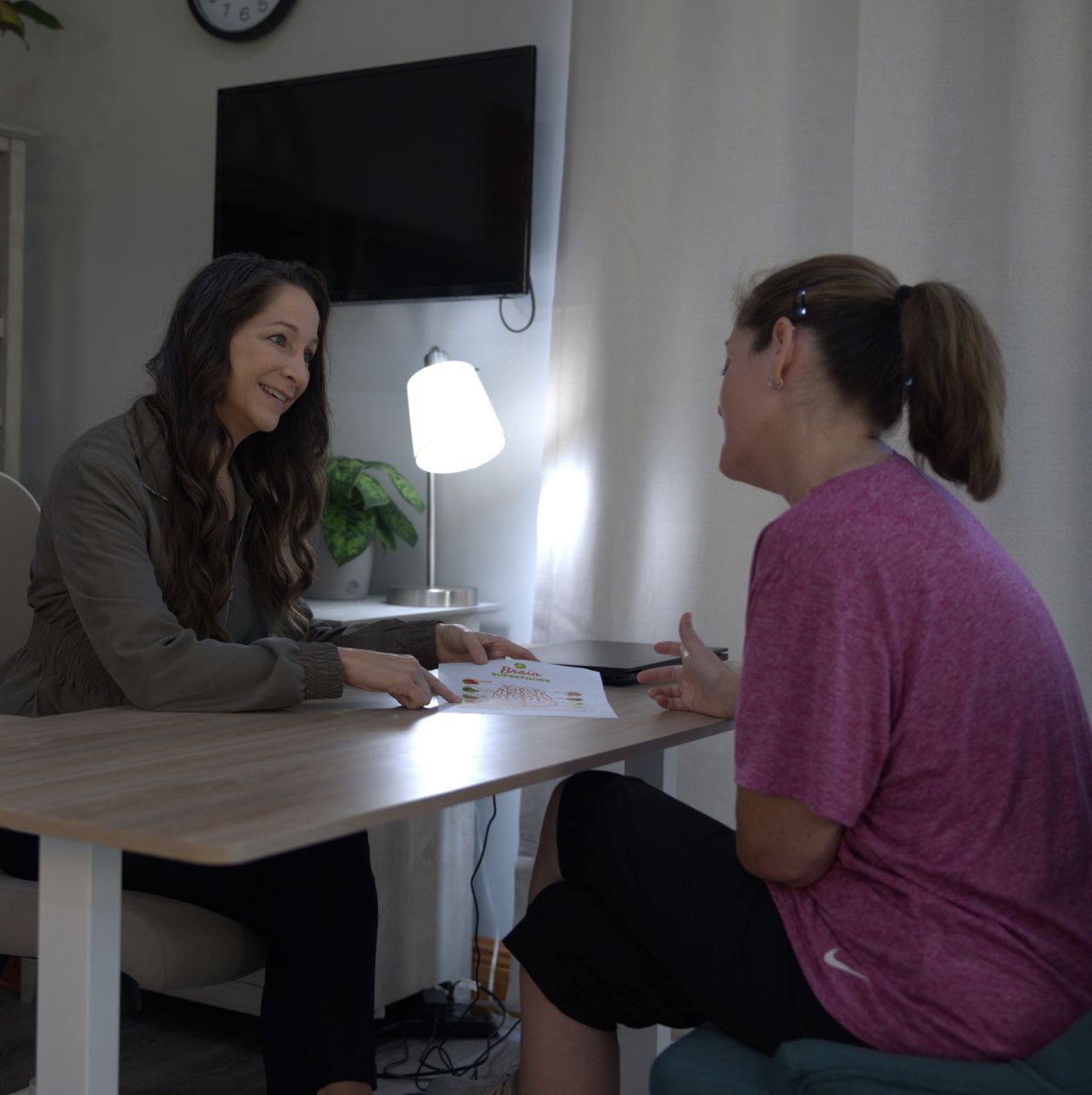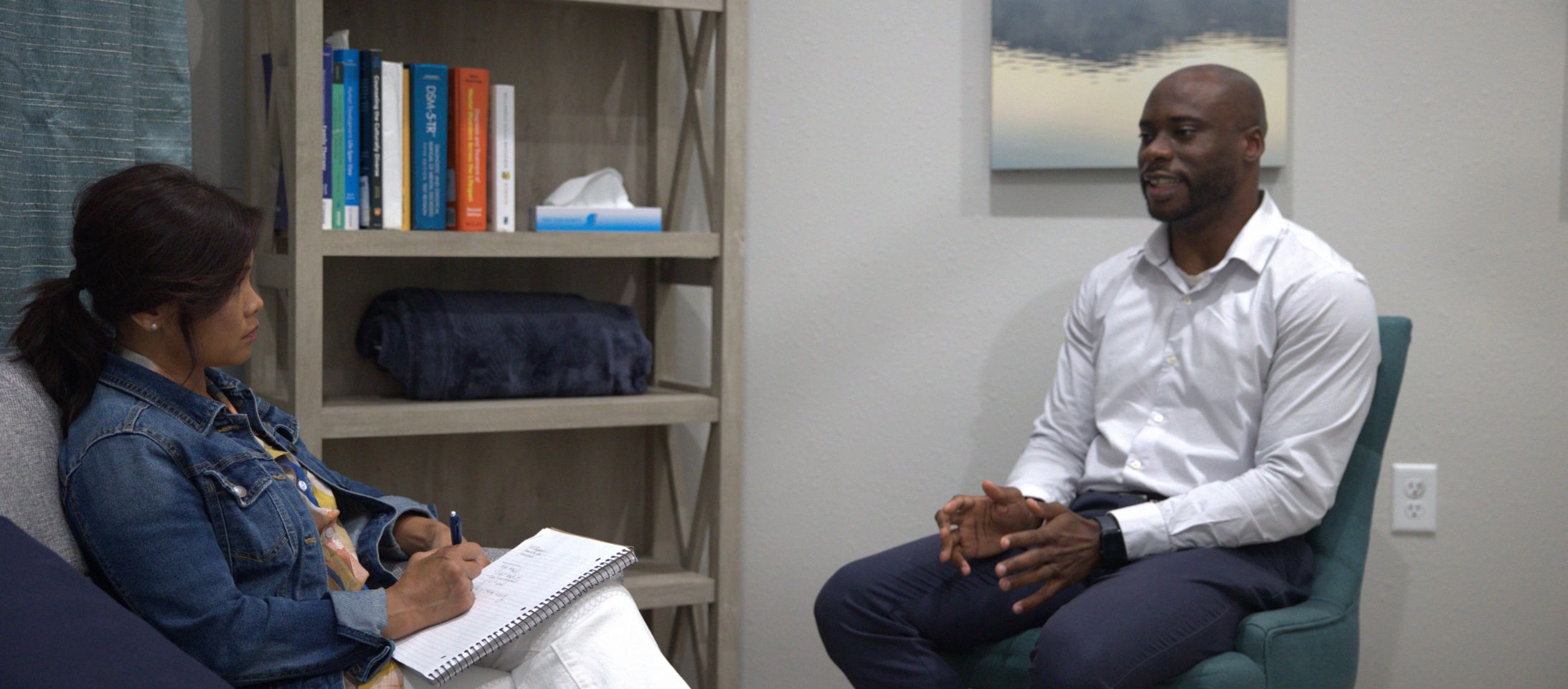Cutting and Self-Injury: Faith-Based Help for a Private Struggle
Cutting and Self-Injury: Faith-Based Help for a Private Struggle
Maybe you’ve been cutting for years, or maybe it started recently—just a few lines to release the pressure, to feel something, or to quiet everything inside. You might not even think of it as self-harm. Maybe it’s just “your way of coping.”
But the truth is: cutting is a form of self-injury. And if you’ve found yourself here—reading this—you’re already showing incredible strength by trying to understand it.
At Honey Lake Clinic, we walk with adults who are struggling with cutting and other forms of self-harm. Whether you’ve hidden it for years or just started to wonder if this might be a problem, you are not alone—and you are not beyond healing.
Our evidence-based, faith-centered approach is designed to treat not only the behavior, but the emotional and spiritual pain behind it. In fact, 98% of patients who complete our program report meaningful progress.
Let’s take the next step together.

What Is Cutting as Self-Harm?
What Is Cutting as Self-Harm?
Cutting is one of the most common forms of self-injury. It usually involves using sharp objects to create cuts or scratches on the skin, often in places that can be easily hidden—like the arms, thighs, or stomach.
It’s not a cry for attention. It’s often a private, deeply personal act that’s used to:
- Release emotional pain
- Feel something when feeling numb
- Cope with anxiety, rage, or sadness
- Regain a sense of control
- Punish oneself out of shame or self-hatred
You may not even be sure why you do it. For many adults, cutting started during a difficult season—maybe even as a teen—and it never truly stopped. For others, it begins in adulthood, triggered by grief, trauma, or overwhelming stress.
Whatever your story, you’re not weak for coping this way. But you deserve better. And healing is possible.

What Causes Cutting and Self-Injury?
What Causes Cutting and Self-Injury?
Cutting is rarely about the wound itself. It’s a response to emotional pain that hasn’t found another outlet.
It may be connected to:
- Past or ongoing trauma
- Depression or anxiety
- Emotional dysregulation
- Feelings of emptiness, guilt, or shame
- Low self-esteem or a critical inner voice
- Obsessive-compulsive thoughts or perfectionism
- A need to feel in control when everything else feels chaotic
For many, the pain of not cutting feels worse than the pain of the cut itself. But you don’t have to keep living this way.
Signs You May Be Struggling with Self-Injury
You may be wondering if what you’re doing “counts” as self-harm. If you relate to any of the following, it’s time to take a closer look:
- You intentionally cut, scratch, or harm your skin to relieve emotional tension
- You hide scars, cuts, or tools used for cutting
- You feel ashamed or scared when the urge returns
- You experience emotional numbness and use cutting to feel “real” again
- You’ve tried to stop, but the urges keep coming back
- You struggle with anxiety, depression, trauma, or low self-worth
If any of this feels familiar, you are not alone—and this does not have to be your story forever.
A better way is possible.


Treatment for Cutting and Self-Harm
at Honey Lake Clinic
Treatment for Cutting and Self-Harm at Honey Lake Clinic
You don’t need more willpower. You need care that understands both your pain and your potential.
At Honey Lake Clinic, we offer evidence-based treatment combined with Christ-centered healing to address the roots of cutting and help you build a new foundation.

Your individualized care plan may include:
- Cognitive Behavioral Therapy (CBT) to address negative thought patterns
- Dialectical Behavior Therapy (DBT) to improve emotional regulation
- Trauma-informed therapy to process past wounds safely
- Faith-based counseling and pastoral care to rebuild self-worth in Christ
- Group therapy to reduce isolation and create community
- Wellness and spiritual restoration practices to create lasting peace
Whether you’re still actively cutting or living with the fear that it will return, we meet you with compassion and a plan for real recovery.
There is hope—and there is help.
Why Choose Honey Lake Clinic?
Why Choose Honey Lake Clinic?
You don’t need to keep hiding your scars—or your story.
You don’t need to keep hiding your scars—or your story.
98% of patients report meaningful progress during treatment
98% of patients report meaningful progress during treatment
Care plans led by Christian, board-certified clinicians
Care plans led by Christian, board-certified clinicians
Whole-person care for your mind, body, and spirit
Whole-person care for your mind, body, and spirit
A serene, private campus on hundreds of acres in Florida where you can rest and heal
A serene, private campus on hundreds of acres in Florida where you can rest and heal
Fully licensed and accredited by AHCA and JCAHO
Fully licensed and accredited by AHCA and JCAHO
If you’re tired of hurting yourself just to feel okay, it’s time for something different.
We’re here to help you find it.
If you’re tired of hurting yourself just to feel okay, it’s time for something different. We’re here to help you find it.
Call Now. Let’s Talk About What’s Really Going On.
Call Now. Let’s Talk About What’s Really Going On.
You’ve already done the brave thing by looking for answers. Let’s take the next step together.
No shame. No judgment. Just the start of real healing.
Call now to speak with someone who understands.
You’ve already done the brave thing by looking for answers. Let’s take the next step together.
No shame. No judgment. Just the start of real healing.
Call now to speak with someone who understands.
Scientifically Validated Healing in a Faith-Based Environment
At Honey Lake Clinic, we believe true healing happens when the mind, body, and spirit are nurtured together. Our integrated approach is both scientifically validated and deeply rooted in Christian faith.
Honey Lake Clinic’s Proven Results:
98%
Feel better now than when admitted
98%
Of patients would recommend Honey Lake Clinic
95%
Reported reduced anxiety
93%
Experienced decreased depression
